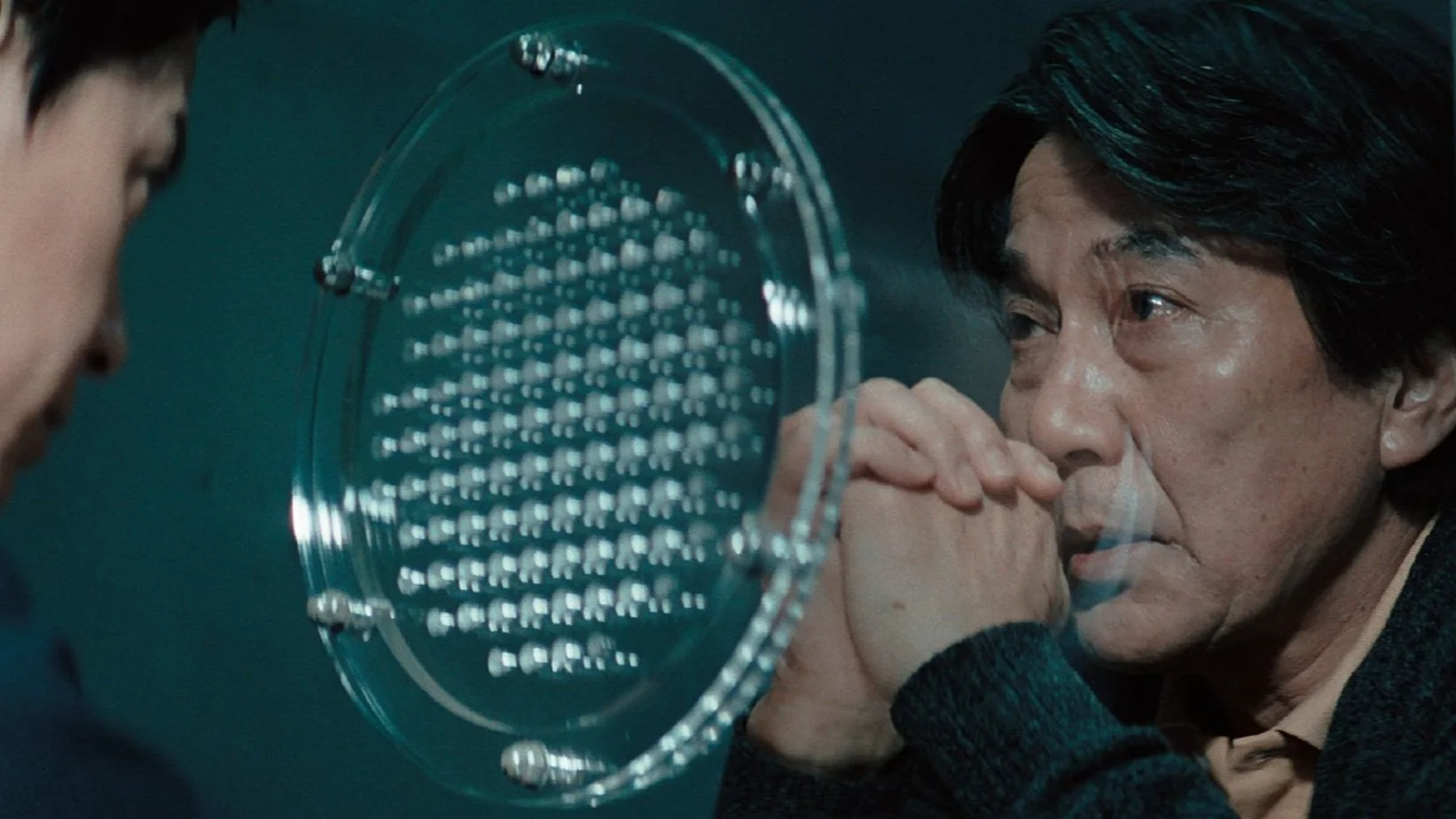The Third Murder
A legal drama that aims for significance on a higher level.
Masaharu Fukuyama and Kôji Yakusho
Although not all of his films have been in the same mould, Koreeda Hirokazu has become celebrated for his portrayals of Japanese family life. Consequently, it came as a shock to learn that his latest piece, written as ever by Koreeda himself, would be a crime story. But in the event it is not the novel genre that makes The Third Murder an unsatisfactory work but the way in which it is presented.
When the film begins, we at once witness a murder and see the face of the killer, Misumi (Yakusho Koji). Nothing could seem more straightforward but what follows is a tale that relishes being enigmatic. Shigemori (Fukuyama Masaharu) is a lawyer asked to lead in the defence of Misumi after he has not only been arrested but has confessed to the killing. That would appear to make the case clear cut even if Misumi had not recently been released from prison after completing thirty years in jail for an earlier double killing. However, Misumi keeps changing his story, not once but again and again. Before long we are pondering at least three distinct motivations each of which puts the latest crime in a different light and eventually Misumi will be retracting his confession altogether.
Many a Hollywood noir thriller deals in twists and turns of the plot but usually in the context of an actionful narrative. This film does it through talk while also bringing two other levels into play The more successful of these is in effect an attack on the Japanese justice system: we find the lawyer taking the view that legal strategy to avoid a life sentence is more important than the truth and the judge is seen to act out of motives no more honourable. The other level could be described as metaphysical. Many an idea is offered up here ranging from the question of whether or not some evil people exist who should never have been born to the notion that some force may exist that has control over our lives. Furthermore, the visuals invite us in time to consider the possible similarities between Shigemori and Misumi.
Much of the time we are struggling to keep up both with the plot and with the ideas and, given a running length of two hours plus, that becomes frustrating despite the sound acting and the film's technical quality. As is symbolised by a final scene at a crossroads, The Third Murder is ultimately interested not in providing answers but in asserting that with so many lies being told it is impossible to be certain what the truth is (even that earlier clear-cut opening scene is replayed differently later on in a kind of dream sequence).
Some critics appear to welcome the film's unfathomability and call it a cerebral work whereas I would call it pretentious. Ultimately, perhaps, it is a film akin to that Japanese classic of 1951, Rashomon, but that film - a much shorter one incidentally - was much more adept at satisfying its audience dramatically even if the truth remained as uncertain there as it does here.
MANSEL STIMPSON
Cast: Fukuyama Masaharu, Hirose Suzu, Yakusho Koji, Mitsushima Shinnosuke, Ichikawa Mikako, Matsuoko Izumi, Makita Aju, Inoue Hajime, Hashizume Isao, Saito Yuki, Yoshida Kotaro.
Dir Koreeda Hirokazu, Pro Matsuzaki Kaoru and Taguchi Hijiri, Screenplay Koreeda Hirozaku, from his own story, Ph Takimoto Mikiya, Pro Des Taneda Yohei, Ed Koreeda Hirokazu, Music Ludovico Einaudi.
Fuji Television Network/Amuse/Gaga Production-Arrow Films.
125 mins. Japan. 2017. Rel: 23 March 2018. Cert. 15.


